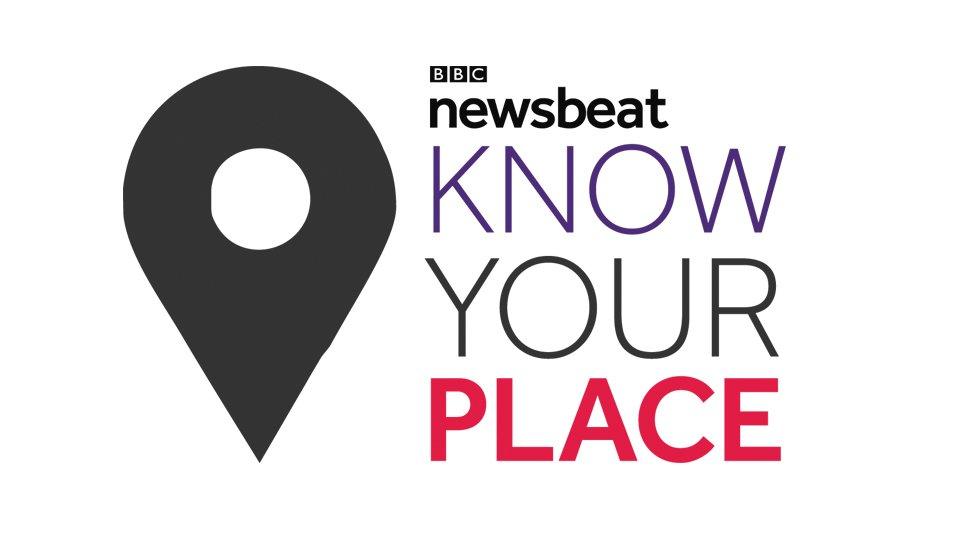Mental health: 'I hadn't ever heard of the word depression'
- Published
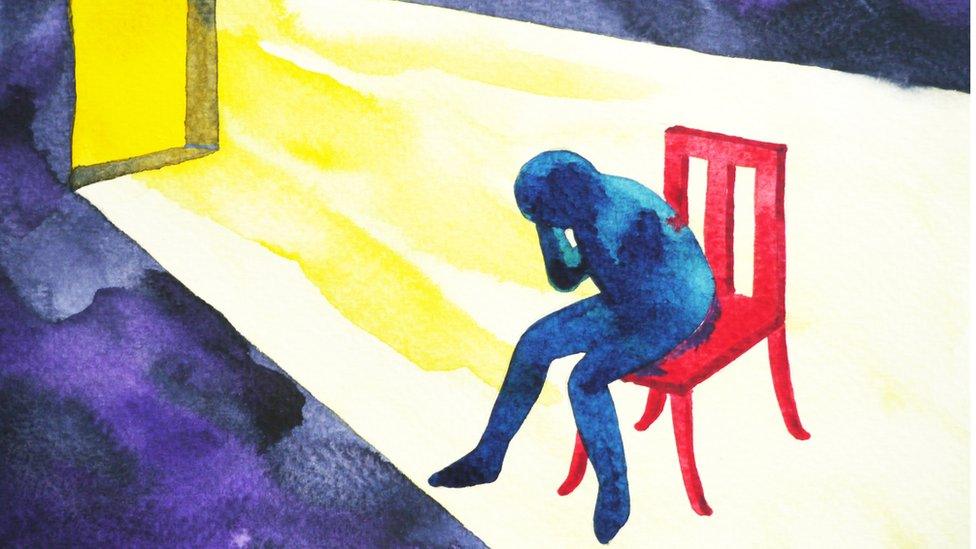
Sally Nimmo's mental health started to deteriorate before she started university, but she didn't understand how she was feeling.
"I didn't know what depression or anxiety was, because I wasn't educated about it at school," the 24-year-old tells Radio 1 Newsbeat.
The student, from South Lanarkshire, admits she had never actually heard the word depression before being diagnosed herself.
We spoke to Sally about Know Your Place - a major piece of research Newsbeat published this week, allowing you to find out what it's like to be young in your area.
We ranked things such as going out, sporting facilities and mental health provision.

Click here if you cannot see the interactive map, external.
Our analysis suggests that Glasgow is at the top of a list of places to live if you're under 26 and have mental health problems.
Glasgow and the surrounding local authorities hit waiting time targets for patients to be seen by medical professionals.

How can you say Glasgow is better than Brighton for mental health provision?
Analysis by Robert Cuffe, head of statistics, BBC News
You can't compare waiting times directly because each of the UK's four nations measures things a bit differently.
Some start the clock when you see your GP, some start it when a mental health doctor decides you definitely need treatment.
But each of the nations has a target for their NHS Trusts: seeing so many of its patients in so many weeks.
We counted how often each NHS Trust met its target and used that success rate to compare trusts.
Glasgow did really well because it sits in NHS Clyde and Glasgow: it met its target every month in the year we looked at.
No other trust in Scotland did that well.
If you want to know more about where the Know Your Place data comes from and how your area was ranked, click here.

Sally's Story
After dropping out of her first degree course, Sally is now back studying at The Glasgow School of Art, but says she faces challenges every day when it comes to being open and honest about her mental health.
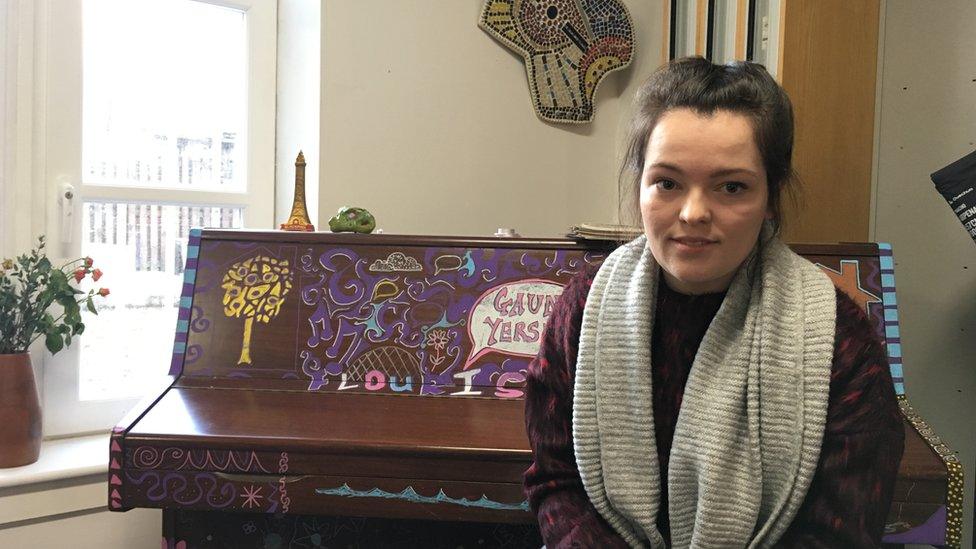
She says: "I've been off medication, and my mental health had been up and down. I'm still going through battles every day, but this time it's not so much with my own mental health but more to do with the way I am being received.
"I got told just to leave my anxiety at the door," she says as she relives having a panic attack in front of lecturers. "They didn't know how to deal with it."
Sally thinks that there are still widespread stereotypes about mental health.
"It is not somebody just being nervous. It's much more than that. I start sweating, I even start to hyperventilate," she says.
The art student says that she thinks a mental health first aid course in schools is a good idea.
"When I was at school there was no mental health education at all and I wasn't able to talk about how I was feeling properly. I feel the ignorance really hindered my recovery. I couldn't find the words to explain what was going on in my head."
Newsbeat's data shows Greater Glasgow and Clyde has hit mental health targets every month out of the past 12. The target is for 90% of people to be seen within 18 weeks.
This is in comparison to other NHS areas in Scotland, England and Wales who have failed to meet targets.
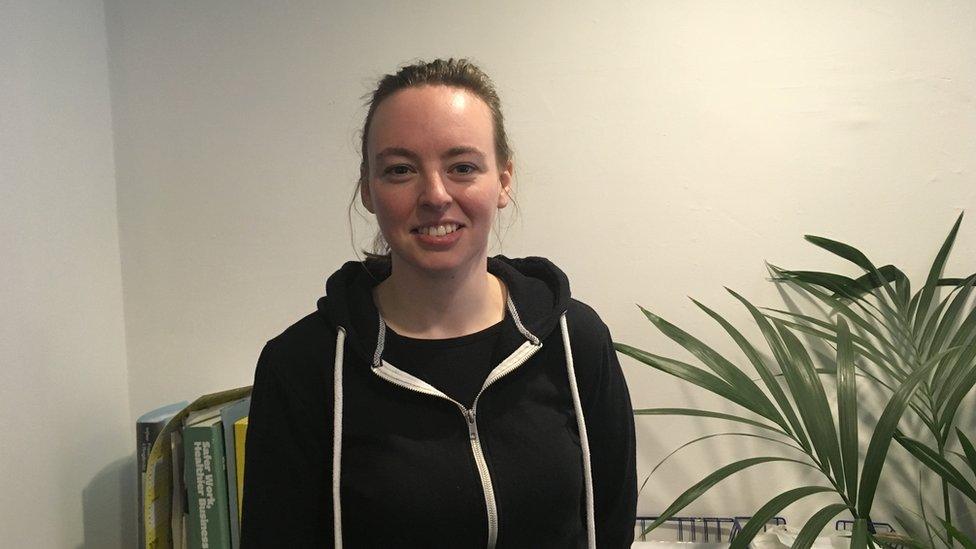
Gemma Welsh, 27, who used to self-harm, says: "I think we all need to be a bit more open when it comes to talking about our mental health. But I have had a lot of different experiences - some good and some bad.
"When I was suicidal, a friend encouraged me to go to the GP. It took a lot of courage to finally go, and I was told I wasn't depressed. It knocked my confidence when it comes to speaking out. It was really damaging and made me a lot worse. When you are scared to talk, it is hard to get help."
When Gemma - a dog-walker from Kirkintilloch - did finally get referred for the support she needed, things were still hard. She was living in Stirling, but offered counselling in Larbert, which is about 25 minutes away.
"The process of me getting from Stirling to Larbert involved train journeys, those were not great places for me to be when I was feeling suicidal. When I missed sessions, I was at the bottom of the waiting list and had to wait for help again," she says.

Click here if you cannot see the preference calculator, external.
Both Sally and Gemma are now volunteering with See Me Scotland, a charity that aims to break down barriers when it comes to talking about mental health.
Dr Fiona Murray, a consultant clinical psychologist in Greater Glasgow and Clyde NHS, says a self-referral system has helped them perform well when it comes to waiting times.
She says that when people call their service, they are contacted again within 24 hours.
"It's really quick access and we do a mini assessment on the phone by asking them a series of questions.
"We cover risk, so we can look out for people who are suicidal. A lot of people have thoughts without intent, and we need to distinguish the different levels of mental health support that people need.
"There's a perception out there that individual work is the most effective, but this is not actually the case.
"We have a lot of resources online, external to help people manage their mental health. Audio and visual guides that people can download for things like anxiety, depression, panic attacks and self-esteem. For some people these courses are enough."
Follow Newsbeat on Instagram, external, Facebook, external and Twitter, external.
Listen to Newsbeat live at 12:45 and 17:45 every weekday on BBC Radio 1 and 1Xtra - if you miss us you can listen back here.
- Published7 February 2019
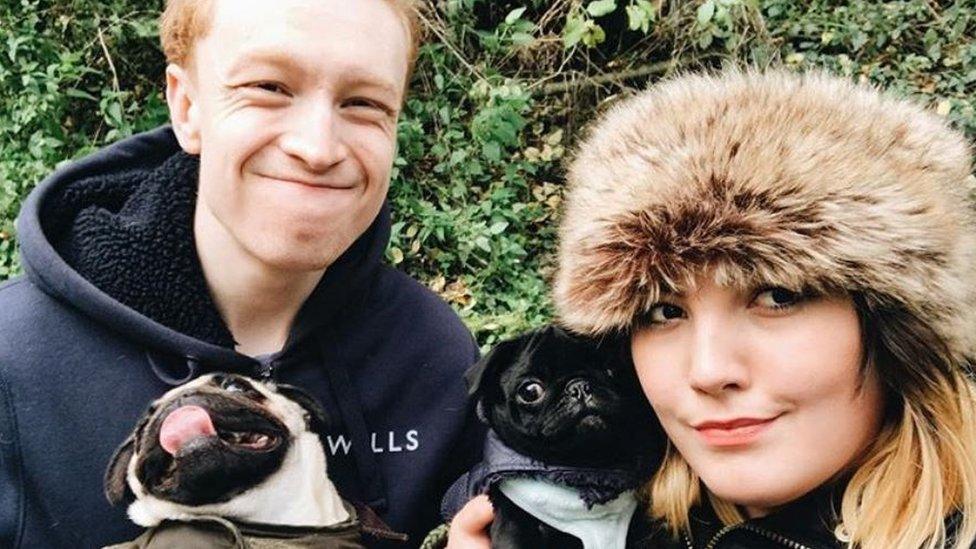
- Published6 February 2019
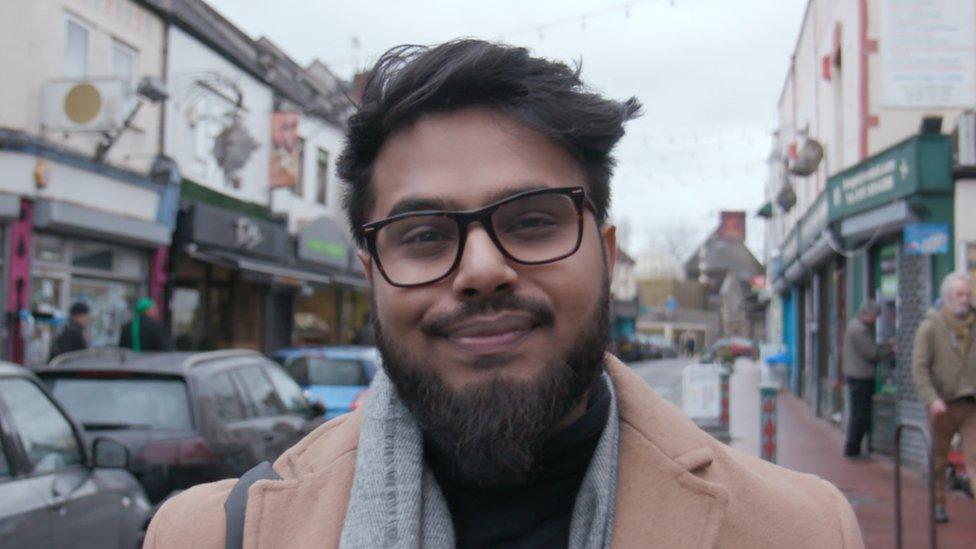
- Published6 February 2019
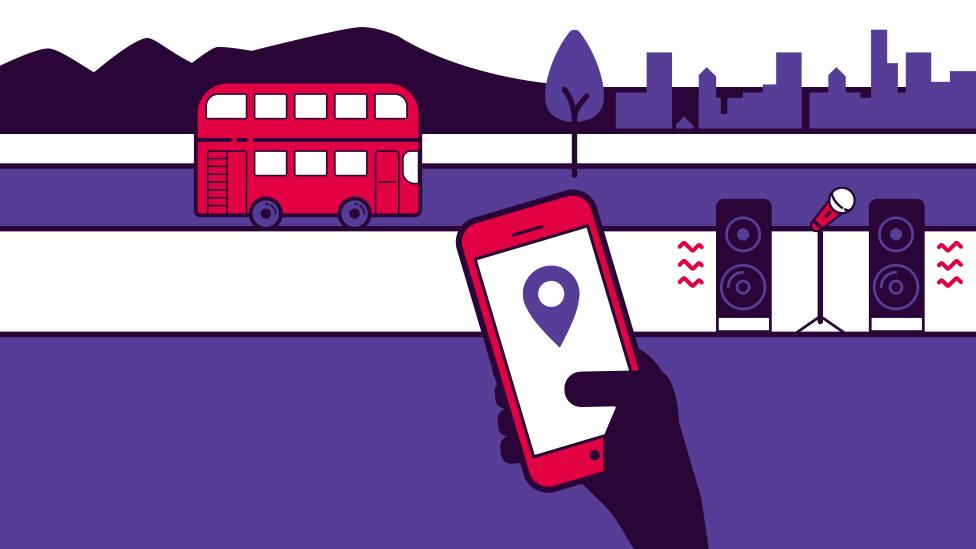
- Published5 February 2019
